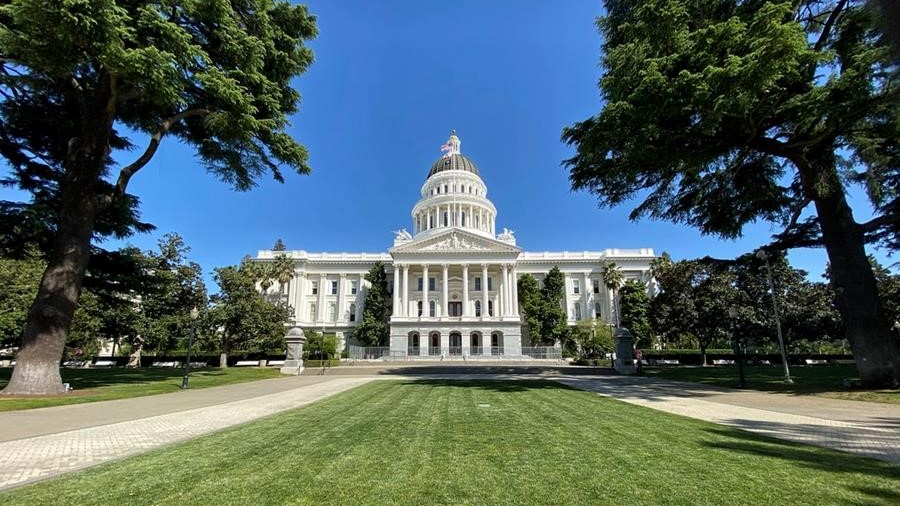GOVERNMENT AFFAIRS – BRIEF HIGHLIGHTS
By Jeff Aran, CSA Legal Counsel / Government Affairs Director
Not only was April 21st CSA’s Board meeting and Day at the Capitol in Sacramento, but that morning we learned the US Supreme Court upheld the distinction between onsite and offsite signs in a case closely supported by CSA, ISA and other sign associations, as well as thousands of cities throughout the country.
Supreme Court Decision
Briefly, in City of Austin, TX v. Reagan National Advertising, Reagan and Lamar sought to overturn Austin’s prohibition of offsite digital billboard conversions (when onsite digital was permissible) on grounds that the city ordinance effectively constituted unconstitutional content control in violation of the First Amendment in light of Reed v. City of Gilbert, AZ (holding unconstitutional that city’s preferential treatment for certain temporary directional signs posted along the right of way).
Whereas, Austin and numerous amici (“friends of the court”), including CSA, ISA and even Scenic America, contended the city’s ordinance, like all similar ordinances, merely controlled the location of the display — not the message — and thus was a reasonable time, place and manner regulation. Reviewing decades of history and legal precedent, the Supreme Court agreed, clarified and confirmed that the on/off distinction was valid.
Glomming on to a phrase from Reed, the lower court (Court of Appeal for the 5th District) interpreted Reed to mean if a reader must ask: “who is the speaker and what is the speaker saying” to apply to a regulation, then the regulation is automatically content based. However, the Supreme Court disagreed: “This rule, which holds that a regulation cannot be content neutral if it requires reading the sign at issue, is too extreme an interpretation of this Court’s precedent.”
In the words of the Court, an “examination of speech only in service of drawing neutral, location-based lines” does not per se constitute a First Amendment violation. The Austin ordinance did not “single out any topic or subject matter for differential treatment.” Rather, so long as restrictions “do not inherently present ‘the potential for becoming a means of suppressing a particular point of view’ […], the message on the sign matters only to the extent it informs the sign’s relative location. The on-/off-premises distinction is therefore similar to ordinary time, place or manner restrictions.”
Among other legal morsels from the decision, the Court held a contrary ruling would effectively disregard the “teachings of history, experience and precedent” and hold that “tens of thousands of jurisdictions have presumptively violated the First Amendment, some for more than half a century, and that they have done so by use of an on-/off-premises distinction this Court has repeatedly reviewed and never previously questioned. For the reasons we have explained, the Constitution does not require that bizarre result.”
Legislative Update
Every year, numerous proposals affecting signage move through the Capitol. Most are innocuous relative to the sign industry and lately many pertain to restrictions on cannabis advertising. However, a couple bills relating to restrictions on outdoor lighting, including LED illumination, caught our attention and are wending their way through the legislative process. In addition, several bills affecting contractors and worker’s comp issues are on radar.
LED Regulation. AB 1710 (Alex Lee) — “This bill would state the intent of the Legislature to enact legislation relating to the regulation of residential and outdoor light-emitting diodes (LED) fixtures that create artificial light pollution at night, which causes harmful environmental and public health effects.”
STATUS: After speaking with the author’s Chief of Staff on 4/25/2022 we learned this bill will not be moving forward this year.
Outdoor Lighting Restrictions (including signage). AB 2382 (Alex Lee) – Sponsored by the Audubon Society, “This bill would require, with certain exceptions, on and after July 1, 2023, a state agency, as defined, to ensure that between the hours of 11 p.m. and sunrise, an outdoor lighting fixture that is installed on a building or structure that is owned, leased, or managed by a state agency to meet prescribed standards, such as requiring that fixture to be motion activated with a duration of fewer than 15 minutes and equipped with an automatic shutoff device.” “Outdoor lighting fixture” means an outdoor artificial illuminating device, whether permanent or portable, including, but not limited to, artificial illuminating devices installed on a building or structure and used for illumination or advertisement, including, but not limited to, searchlights, spotlights, and floodlights, used for architectural lighting, parking lot lighting, landscape lighting, billboards, or street lighting. Exemption: (a) Outdoor lighting fixtures on advertisement signs on interstate highways and federal primary highways.
STATUS: Passed the B&P Comm, now pending before Assembly Appropriations. CSA outlined our concerns in writing and leadership met with Assemblyman Lee’s Chief of Staff on 4/25/22 to discuss. We will be presenting further comments and recommendations.
Fluorescent Ban. AB 2208 (Kalra) — “This bill would prohibit, on and after January 1, 2024, a compact fluorescent lamp, as defined, and, on and after January 1, 2025, a linear fluorescent lamp, as defined, from being offered for final sale, sold at final sale, or distributed in this state as a new manufactured product. The bill would exempt various lamps that meet specified criteria from that prohibition, including lamps used for image capture and projection and lamps used for disinfection.” Includes: ll tube diameters, including, but not limited to, T5, T8, T10, and T12; All tube lengths from 0.5 to 8.0 feet, inclusive; All lamp shapes, including, but not limited to, linear, U-bend, and circular. NOTE: “On and after January 1, 2025 a linear fluorescent lamp shall not be offered for final sale, sold at final sale, or distributed in this state as a new manufactured product.”
STATUS: Not yet calendared for hearing.
Sports Arena signage. SB 1309 (Durazo) — Modifies the existing “sports arena” signage exemption for off-premise signage under the Outdoor Advertising Act (billboards): “The bill would require an advertising display exempt from the act that is constructed after January 1, 2023, and located more than one mile from the premises of an arena to be located at least 5,000 feet from any advertising display for a different arena displaying an advertisement authorized pursuant to these provisions. The bill would expand the definition of “premises of an arena” for these purposes and would reduce the length of time of a sponsorship marketing plan to qualify for the above-described exemption to a period of not less than 30 days.”
Also, modifies the definition of structure for purpose of the law to include: “Any development project or district encompassing the venue, adjacent to it, or separated from it only by public or private rights-of-way, the boundaries of which have been set by the city, county, or city and county in which the arena is located. The development project or district must be contiguous and may not extend more than 1,000 feet beyond the arena structure or any structure physically connected to the arena structure. structure, or any adjacent plaza area or parking facility used in the operation of the arena.”
STATUS: Passed committee.
[The Outdoor Advertising Act currently exempts from its provisions certain advertising displays, including, among other things, any advertising display used exclusively either to advertise products, goods, or services sold by persons on the premises of an arena on a regular basis, or to advertise any products, goods, or services marketed or promoted on the premises of an arena pursuant to a sponsorship marketing plan, if specified conditions are met, including that the advertising display is located on the premises of the arena or has been authorized as of January 1, 2021, by, or in accordance with, a local ordinance, as specified. The act requires that, in order to qualify for the exemption, a sponsorship marketing plan, among other things, must be for a period of at least one year.]
Worker’s Comp Insurance. AB 2894 (Cooper). Would require all licensed contractors to post their WCC code with their CSLB listing. SB 216 (Dodd) would require effective 1/1/2025 all licensed contractors or applicants for licensure to obtain and maintain workers’ compensation insurance, even if that contractor has no employees, and would also prohibit the filing of a certificate of exemption.
STATUS: both pending in Assembly.
Building Permits. AB 1747 (Quirk). This bill would authorize disciplinary action by the CSLB for willful or deliberate disregard of any state or local law relating to the issuance of building permits, and would authorize a civil penalty not to exceed $30,000.
STATUS: Passed committee and now in Assembly Appropriations.
— Jeff Aran (4/25/2022)
Sign law expert serving the sign industry and its customers for over 25 years, providing legal and consulting services to sign users, installers and manufacturers. Based in Sacramento, Practice Areas include Zoning; Land Use; Real Estate; Constitutional Law; Employment; & Business. Admitted to the Bar in 1989. Law Offices of Jeffrey L. Aran 1-888-SIGNLAW.


